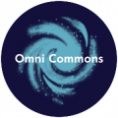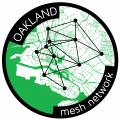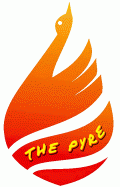|
|
I am conducting a short survey for users of Facebook, MySpace, and/or Tribe.net.
Your participation in this survey is entirely voluntary, and you may terminate participation at any time prior to the completion of this survey without penalty. Please understand that the information you provide will be viewed only by the researcher, and that any responses published will not enable identification of me in any way.
Questions and concerns can be directed to Jenny Ryan (researcher) @
jaryan@wesleyan.edu.
Further information and future publications can be found at http://webnography.blogspot.com
I Agree, Continue to Survey!
As the tech world continues to grow wild for Facebook, the veteran users in my midst- college students- continue to grow indifferent, even annoyed- or so their group discourse would have me believe. “The applications were pretty fun at first,” said one energetic, people-loving friend, “I like throwing food at my friends and turning them into zombies… but it got old real fast.” “They’re stupid, they’re annoying, I just really don’t care at all anymore,” said another friend, who’d spent his past semester abroad, “I mean, I guess it’s useful for keeping in touch with people you don’t care enough about to e-mail.”
“Well, I care so little that I let her,” Dave points a finger at his girlfriend, “go in and change my whole profile around. It’s ridiculous, and I haven’t even changed it back.” They giggle for awhile.
“There are some useful applications,” I point out.
“Well, there’re so many of them, I don’t feel like sifting through all of that crap. Facebook’s turning into MySpace.”
At the same time, I’ve found that my friends on Facebook continue to be highly active, having become skilled at interacting with the more useful features of the site. 25% of the most recent 50 emails in my inbox are Facebook notifications of some sort- generally, event listings, friend requests, wall messages, and pokes. These are some of the ways in which we attempt to connect to one another through forming and maintaining relationships and collective cohesion, digitally.
My conclusion? It’s just not “cool” to like Facebook- one is better off being critical- but many of us depend on it in some way or another as a way of maintaining social bonds. We’ve grown addicted.
Today, after my sister expressed her love for me on my Facebook wall (as she is wont to do), I recorded my first video wall post. Unfortunately, I’m unable to “repost” the video here, but I will say it was quite simple, and rather successful! Facebook recently implemented a variety of options on what was once a user “wall” constrained to text alone. Now, one can record video, post a link, post a band (one needs to first register their band at ReverbNation and upload a few songs, which can then be posted on one’s profile, or linked to on another’s wall), send a randomly-generated fortune cookie, give a “zombie hug”, send a cookie, give a daisy, or post a popular song (when I clicked on this, there was a search bar, as well as 3 popular songs listed: Avril Lavigne, 50 Cent, and Death Cab for Cutie).
I also spent a solid 15 minutes taking screen captures of my friend’s MySpace profile. I made myself stop at 50 shots, that’s how long his profile page is. Lots of links, artistic images, poetry, politically-oriented buttons and banners, the usual favorite books and movies and such, a long introduction (that is prefaced with:
“TOTALLY NOT INTERESTED IN THE FOLLOWING:
your band (unless your organic/synthetic spiritual sounds and presentation could totally wow me, DON’T EVEN BOTHER)
Promoters of any kind!(go away)
spiders, crawlers, spammers, etc go away i don’t like you!
people…who freak me out. (it’s pretty hard to accomplish)
and now! on to the good stuff!”
His comments were nearly as fun to sift through as the profile itself. Beautiful images, replete with some animated sparkles or color shifts, adorned his walls. The requisite “Thanks for the add!” comment was also a strong presence. The majority of the content was “New Age” in nature- faeries, Alex Grey, and my favorite:

Last week, I blazed a testy tirade objecting to what I saw as the haughty condescension of one of my favorite psytrance party promoters (here I am referring to all-night electronic music dance parties of the post-hippie variety). The bulletin I replied to proclaimed that the vast majority of psytrance made in 2007 was crap, with the exception being, of course, the EPs they themselves released. There were also claims to the very depths of the “underground”- coming from people seeking to capitalize on selling the notion (and all the apparel, albums, and $20 tickets that come with it). While the scene is indeed “underground,” no scene ever remains there once money and “quality control” become the mantras of those throwing the parties.
Pointing the way to quality music is one thing, and indeed these cats rightly earn the title of “experts” of this particular genre of music. However, when said “experts” begin to propagate exclusivity and ridicule the efforts of well-meaning, passionate new producers of the very content we rely on experts to help us discover, they take on the form of the lowly critic. “To define is to kill, to suggest is to create,” wrote French poet Stephane Mallarme. To define a genre through criticism does little other than highlight pretension and shatter the confidence of the artists who, particularly in this field, create out of love and thrive off of support by others.
I would know; I’m friends with more than a few such musicians and producers. The critics destroy an unconfident new artist; what keeps any anyone going is inspiration, in its myriad forms. The energized dancing of the partygoers, the feeling of synergetic zen, the comment of a fan on MySpace, the spark of appreciation in the eyes of a hard-to-please friend. To say, “that, there, that was excellent!” in the midst of a frenzied crescendo will propel one to seek that moment again and again. My high school English teacher is my greatest hero, as she lauded me with such praise and support of my writing (“that, there, that was good!” that I began to write furiously, fueled by the twin fires of confidence and passion. that I began to write furiously, fueled by the twin fires of confidence and passion.
By all means, I fully support relying on experts’ opinions to guide us toward quality music, but we are all our own best critics. We would certainly do well to experience, appreciate, and share what we know to be good; better still to spot what could be good and suggest how it could be improved; and finally to simply make what you like to hear yourself, if you’re so picky!
I’ll leave you with the wise words of my favorite poet, e.e. cummings: “I’d rather learn from one bird how to sing, then teach ten thousand stars how not to dance.”
i do not recall what it is to be alone,
i read, i write, i sit and stare,
but most of all i wait
and meditate:
what it means to unfurl,
tug gently at darkened corners of the mind
(it’s come to be their time).
I ran across an interesting thread on Tribe.net yesterday entitled “What is Technoshamanism?” You can read it here, but in a nutshell, the respondees described technoshamanism as a means of uniting the past and the present, or the spiritual and the technological. From dancing around a bonfire to the beat of the drums, to dancing all night long to electronic trance music, the end goal is a spiritual connection to the universe that dates back to the beginning of humankind’s time on this planet.
I have to simply marvel, at times, how meticulously the system of Facebook is run. Nothing is deleted, all is stored. Upon deleting my Facebook account, I learned that the moment I logged in again, my entire account- the photos, the messages, the wall posts- would be rekindled from my momentary lapse of Facebook identity, as if I had taken a vacation… which, admittedly, I had.
The new frontier for individualism, the virtual frontier, is at this point still an open one. However, as this sphere becomes increasingly dominated by large corporate networks, understanding the illusory nature of agency is critical. John Barlow’s Declaration for the Independence of Cyberspace has never been more poignant.
It is the first night living alone – this one, right now. Telling myself I need to take a break from the carrying, the unpacking, the arranging of my possessions in an aesthetically pleasing manner, I hop onto the internet to check messages. A familiar name pops out at me from a Facebook notification- a dear friend who’d spent the entirety of the past year in Spain. She writes to tell me she’ll be at Wesleyan on Tuesday, and I go from alone in the glow of the monitor to basking in the glow of love, instantly.
I click the ‘Home’ button, and scroll through my News Feed. A tiny heart appears at the bottom of the screen- a man who’d led a Buddhist retreat had a new girlfriend! And they’d hooked up in 2006 and it was “fabulous”. This is way better than tabloids, because I actually sorta know this guy. I mean, we’re Facebook Friends.
MySpace is plastered with Dane Cook. MySpace is for bros. My 19 year old cousin assaults the ears of visitors to her profile with screamo and concludes her welcome message with “i probably don’t like you.” All of my friend requests are from electronic musicians. I do enjoy electronic music, by and large. A friend of mine who recently began producing tracks just joined MySpace, and already has over 400 friends. I asked if he’d been spending a lot of time “friending” MySpacers, and he replied, “well, half of them have friended me”. His Comments board is plastered with psychedelic images, a few of them animated. There is an image of a woman whose moniker contains the word “suicide,” holding a pair of black panties beneath a caption that reads “Thanks for the add! xoxo”.
That is all.
in the soup kitchen
of soapy dishes and dirt-drenched dreams,
we come out clean.
somewhere along the line i lied,
ashes and dust take residence
where once there was wish.
delirium licks languidly along
the perturbed,disturbed periphery.
on center stage: pure entropy.
Asked to attempt a summation of the online social networking community known as tribe.net, I have taken to replying with the single phrase, “technoshamanism”. It seems the word has not yet been taken up by many, so I’ll attempt a definition here.
(For a little background information, you’d be keen to check out a term project I worked on for my Anthropology of Dance class, entitled “The Trance Dance Experience“)
A technoshaman is one who integrates modern technology into primordial practices in order to induce transcendent experiences. Now, such a description evokes remnants of that anthropological black mark- the noble savage- and thus I proceed with caution, unwilling to romanticize:
Technoshamanism seeks to rediscover the roots of human experience while utilizing modern tools. Such tools can range from repetitive electronic music, to synthetic drugs, to new technologies such as biofeedback. The states thus induced might range from supersensory to meditative. Modern “rave” culture (and I use this term with caution as well, for the rave scene has become inundated by the mainstream, thus necessitating an emergent subculture(s)) incorporates just such tools to achieve just such states, and where site and ideology merge, we have our subculture.
Regardless of terminology, the essence of such subcultures is the pursuit of the collective unconscious, consciously realized and enacted. When I say “neotribal,” I refer to the tribal experience as it is recreated in the modern day. Safe spaces are created through collective artistic action; drugs consumed that serve to enhance feelings of empathy, community, clairvoyance, and/or transcendence; music played that serves to enhance said feelings and provide the collective pulse. This occurs with varying degrees of success, depending on whether individuals collaborate effectively to achieve the same goals.
The Internet is, quite naturally, one of those modern technologies that is utilized by technoshamans as a means of tapping into the collective neural network. As it exists apart (or, at the very least, disjointed) from time and space, the shape and texture of the Internet resembles that of technoshamanism itself. That’s all I’ve got for now.
|
|






 that I began to write furiously, fueled by the twin fires of confidence and passion.
that I began to write furiously, fueled by the twin fires of confidence and passion.